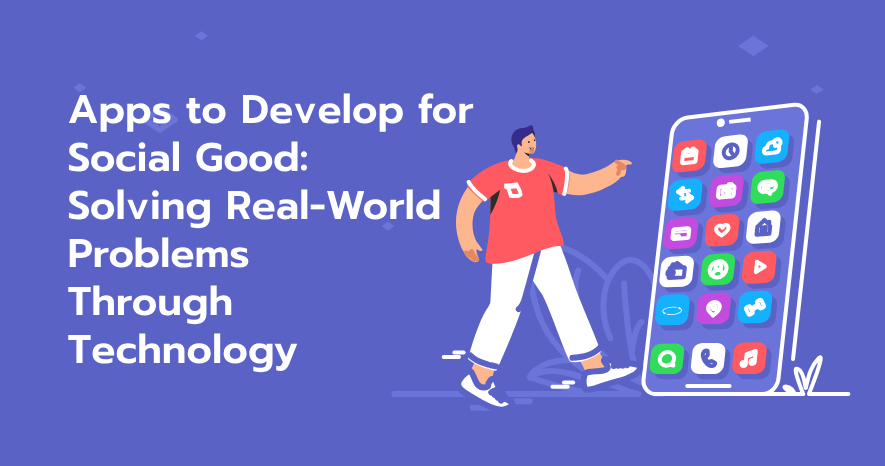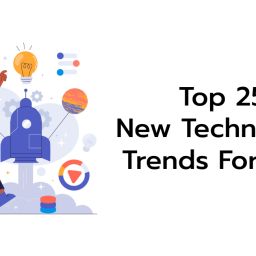In this technology driven lifestyle, apps for social good have emerged as a very powerful way to battle various societal issues. From improving access to education and facilities to dealing with environmental issues, innovative apps to develop empower communities worldwide and create meaningful change throughout. By leveraging the ever-improving sector of artificial intelligence, people have the chance to build impactful applications under the name of AI for social good.
The Growing Need for Apps for Social Good
The world is facing a myriad of challenges such as poverty, climate change, lack of healthcare, and inequality in the levels of education. Such problems can be reduced immensely via mobile applications which can serve as a roadway to improvement. A single pair of a mobile phone and an internet connection can drastically change the conditions of underserved communities and improve their lives. For developers and entrepreneurs, identifying impactful apps to develop is an opportunity to merge business goals with societal needs.
Examples of Apps for Social Good
Healthcare Access Apps: Apps like Practo provide remote consultations, access to medical resources, and health tracking. Developing more healthcare apps can bridge the gap for those in remote or underserved areas.
Educational Apps: Platforms like Duolingo and Khan Academy are paving the way cheap online education. Future apps to develop could focus on making apps particular to regions to remove cultural barriers.
Disaster Management Apps: Apps like Zello have revolutionized coordination processes during natural disasters. Advanced apps for social good could leverage machine learning and AI to predict disaster patterns.
Leveraging AI for Social Good
The integration of AI into apps have opened up new horizons for apps to develop that focus on the societal good. AI for social good improves the efficiency and scalability of apps all in the meanwhile offering future predictions. Here are some areas where AI can shake things up:
Predictive Healthcare: Developers are working on applications which use AI to predict and diagnose diseases like cancers and even heart attacks.
Education Personalization: AI has changed the online education scenario by learning studying patterns of students to make personalized learning plans.
Climate Change Mitigation: AI-based apps can monitor deforestation, track pollution levels, and predict climate change trends.
Key Features of Successful Apps for Social Good
Creating impactful apps for social good involves careful consideration of the target audience, functionality, and scalability. Here are some features that developers should focus on:
User-Centric Design: A simple and complete UI/UX is extremely vital to make it accessible to the normal audience.
Localization: Apps should provide their services in regional languages.
Data Privacy: Ensuring the security and privacy of user data is critical, especially when dealing with sensitive information like health or financial data.
Challenges in Developing Apps for Social Good
While the potential for impact is high, developing apps for social good comes with unique challenges:
Funding and Resources: Many social good projects struggle to secure adequate funding. Collaborating with non-profits, governments, and impact investors can help address this issue.
Access to Technology: The target audience for many apps to develop often lacks access to high-end devices or stable internet connections. Ensuring offline compatibility and low RAM usage should also be looked after.
Cultural Sensitivity: Developers must understand the cultural and social dynamics of the communities they aim to serve to ensure the app’s acceptance and effectiveness.
Sustainability: Ensuring the long-term usage of apps is absolutely necessary. Recurring users should be tracked meticulously.
Steps to Start Developing Apps for Social Good
Identify a Problem: Conduct market research and surveys to identify the problem your app is going to solve.
Define Clear Objectives: Set measurable goals which can be quantified. It will help set clear goals and even would help in securing funding.
Collaborate with Stakeholders: Partner with non-profits, government agencies, or local communities to gather new insights and perspectives.
Leverage Open-Source Tools: Utilize open-source libraries and platforms to reduce development costs and accelerate your timeline.
Test and Iterate: Conduct high level user acceptance testing with your target audience to understand their wants and needs.
Conclusion
The potential for apps to develop that solve real-world problems is immense. By focusing on apps for social good, developers can create solutions that not only generate revenue for them but also solve some problem our world is facing at the same time. Leveraging advancements in AI for social good, we can improve the lives of the underbellies of our society. Whether you’re an entrepreneur, developer, or investor, consider the untapped potential of apps for society to challenge yourself and make this world a better place for others and your future generations to come.




